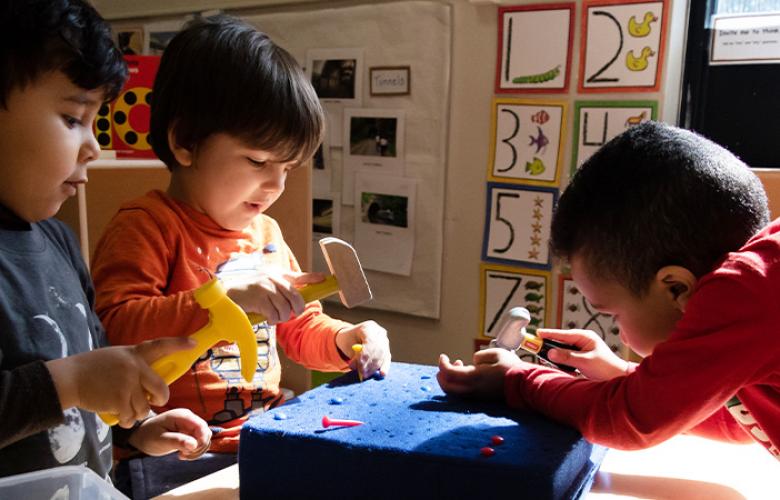
The topic of collaboration is central to our work. Specifically, Meghan has worked on several research projects on partnerships and collaboration, and Jana’s technical assistance work has supported systems building and collaborations among early childhood providers, policymakers, and other stakeholders. This work is not new, but recent initiatives have highlighted the importance of successful collaborations in building strong early childhood systems.
Specifically, over the last year, 46 states and territories have been conducting wide-scale needs assessments and planning strategically for their systems of early childhood education and development. These Preschool Development Grants B-5 Initial Awardees are now diving into the activities that will drive their strategic plans toward success. The foundation of that success is the collaboration among partners.
While numerous studies and conference presentations have focused on early childhood collaboration, few have been published in peer-reviewed journals. To address this need, Diane Schilder and Meghan Broadstone, together with colleague Stephanie Curenton, co-edited the Special Issue on Early Care and Education Collaboration of the journal Early Education and Development, published in October 2019.
The special issue includes seven articles on collaborations among child care and early education teachers, providers, or programs:
- Two of the articles focus on Early Head Start/child care partnerships: one by Levere and colleagues and one by Halle and colleagues.
- Two articles focus on collaborations among child care, Head Start, and preschool programs: Hawkinson and Davis Tribble and Schilder, Broadstone, and Leavell.
- Mowrey and King’s article explores patterns of collaboration among teachers.
- DeMeo-Cook and Coley describe how Head Start programs support children’s transition to and success in kindergarten.
- Soliday Hong and colleagues present a conceptual framework that broadens the definition of collaboration.
- A commentary by Connors-Tadros presents reflections on the implications of these articles for research, policy, and practice.
Findings on the features of successful collaboration show the importance of administrative procedures to support collaboration and of devoting resources to building and sustaining relationships. For non-researchers, these findings might seem obvious, but the research provides important implications for policymakers and early care and education practitioners.
One key question raised by this work is how to reach providers and families who have traditionally been excluded from formal systems. As states revisit their strategic plans and build stronger systems, stakeholders need to make sure these systems work for more children and families.
Meghan Broadstone is a research scientist and Jana Martella is a senior project director, both at EDC.
Add new comment